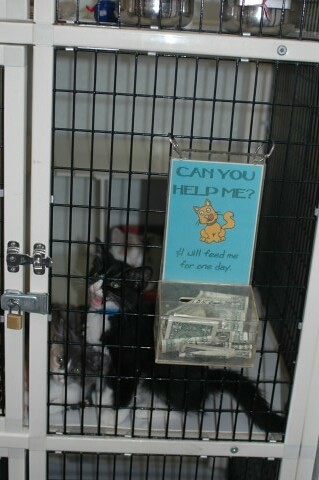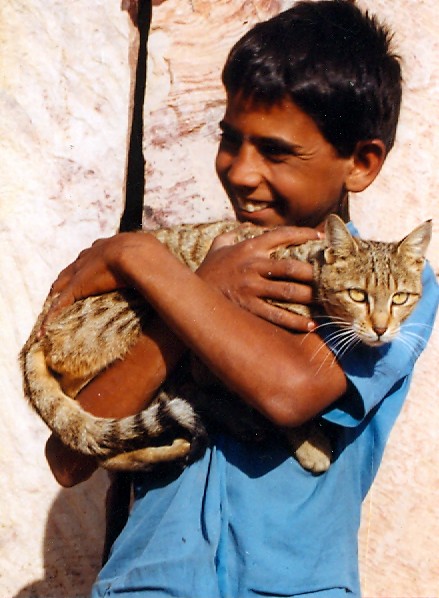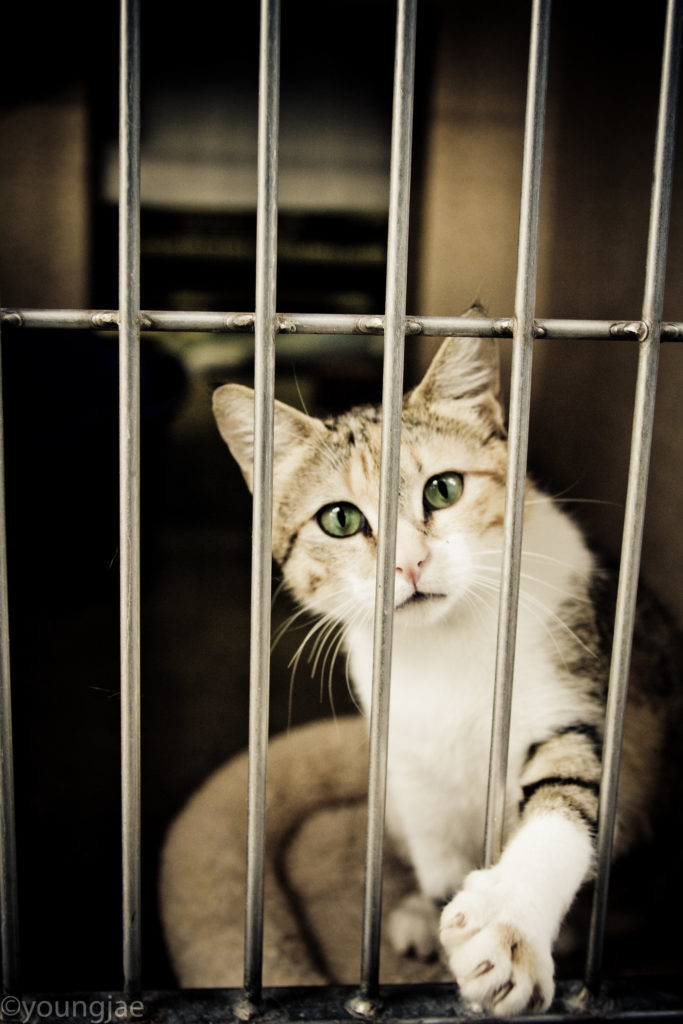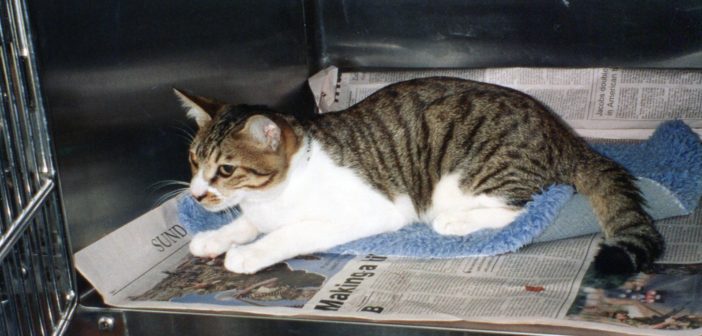Homeless animals all across America wouldn’t have nearly so many terrific shelter outcomes without the passionate volunteers who give their time and energy. They supplement the paid staff in labor-intensive organizations that can always use more helping hands.
I’ve worked with volunteers who wanted take care of laundry, find sponsors for fundraising events and, of course, interact directly with the animals themselves. The range can be expansive.
Occasionally, a shelter volunteer will have an experience that leads them into a whole different direction of supporting animals in need. Such is the case with Julia Grosz, a 38-year-old geologist from Centreville, Virginia.
Once a volunteer with a local animal shelter in Northern Virginia, she decided she wanted to take a different course to help cats who need homes. And that’s how The Acatemy annual conference, which ran for its second year in January 2020, was born.
Spending her days in a family business working on the exploration for mineral resources in Alaska, Julia started out as a fostering volunteer at a shelter after her pet cat died about six years ago. She ended up taking on more volunteer assignments at the shelter. Tasks included writing up cage notes and Facebook bios for some of the cats in residence.
“I really got a high when one of the cats I wrote about was adopted for the first time,” Julia said.

Administrators encouraged her efforts because they were effective, and she found that the feedback made her want to do even more to help cats. But, after some turnover in the shelter’s leadership, she started looking at other options for assisting the feline species.
In 2016, she founded Cat Hustler, a website and later a 501(c)3 nonprofit focused on empowering staffers and volunteers of shelters and rescue groups by sharing information about more and better ways to market cats for adoption. The organization’s name is from a nickname given to her by other shelter volunteers based on her own ability to find homes for even those cats having the most difficulty getting adopted.
“I understood many of these cats,” she said. “They were feeling emotional pain and were closed off in the shelter environment.”
Julia pointed out that part of her childhood spent as a special education student helped her know what these cats are experiencing, providing her with even more motivation to find them new families. She places a special emphasis on educating volunteers, as opposed to staff, by giving them practical how-to tips and advice on navigating environments in which they don’t have decision-making authority.
Cat Hustler’s first forays were showing people with limited technical skills how to edit and enhance cats’ photos. She offered training videos of how to present the adoptable animals online to their best advantage. Topics included basic graphic design, writing and arranging text, photography tips, style suggestions and running online contests featuring cats up for adoption.
As word of her efforts spread, some shelters in the Washington, D.C. area began reaching out to her for assistance. She remembers helping one SPCA in Virginia place Tess, a cat who’d been in the shelter for five years trying to find a home.
“She touched me in a big way,” said Julia. Unfortunately, Tess never found an adopter. She died shortly after being transferred to a sanctuary. But she did inspire the Cat Hustler’s next initiative, the Mensch Squad.
The squad is a group of about twenty volunteers called in to different organizations on an ad-hoc basis for specific projects. Efforts run the gamut from basic cleaning of kennels and litter boxes to constructing a goat pen on Mother’s Day.

“The social aspect of the group of volunteers going together to work on the same project is something I am trying encourage,” Julia explained. “The group dynamic is necessary for all of this to work.”
Other Cat Hustler efforts include organizing a release party for a screening of Kedi, a documentary about the street cats of Istanbul. Another event featured folks from shelters, animal control and trap-neuter-return (TNR) groups. Also on hand were adoptable kittens born to outdoor cats and experienced TNR practitioners who could demonstrate trapping. The event attracted approximately 150 people.
Later, Julia’s organization evolved again. She began to organize in-person workshops on marketing adoptable cats. Advice is provided on subjects ranging from getting the best possible photos using a smartphone to writing a guide for fosters.
Her first three-hour symposium took place at a public library. Turnout exceeded the available space when 100 people showed up. By request, Julia then gave the symposium in New Jersey and at cat cafes that were looking to boost their business traffic and adoption rates.
All information that Julia provides to seminar attendees will go on her website, so that cats the world over can benefit from an open-access information exchange. Meanwhile, the geologist-by-day has found herself handling management tasks like arranging educational events and inviting speakers for the first time in her life.
In 2019, Julia went one step further, organizing a two-day conference at a Chantilly, Virginia hotel that she called The Acatemy. There were 22 speakers and 150 attendees. Featured sessions included “fear-free” handling techniques for cats, data collection and tracking for TNR projects as well as using Instagram to promote kitties seeking homes.
In addition to providing education, Julia aims for The Acatemy to offer a social outlet.
“Cat volunteers are very intense people,” she explained. “They sometimes feel like no one in administration is listening. I want them to be with other people who empathize with them and the cats they are helping.”

The second Acatemy took place January 17-19, 2020 near Dulles Airport in Northern Virginia. The price wa $160; Julia’s intention is to break even with the conference.
This year, there were more speakers and more attendees with a broader range of geographical and professional backgrounds. Julia was looking to avoid repetition of speakers from previous events because she wants more people to be new speakers. In fact, someone from Toastmasters was on hand to help people improve their public speaking.
“Forty percent of the speakers will be first-time speakers,” she said before the conference. “I want to give people a chance to be heard.”
Breakout topics included approaching companies for sponsorships, cats as therapy animals, cat first aid and CPR, feline diseases like panleukopenia and leukemia, litter box troubleshooting and kitten nurseries. Someone from the Cat Writers Association assisted attendees on using their own ability with the written word to market cats.
Combined with all the education opportunities were social mixers, including a pre-conference stuffing of attendees’ swag bags. People who didn’t want to attend the instructional sessions were still able to socialize at scheduled afterparties.
“I want people talking and becoming friends,” said Julia, who used an app for the conference guide, rather than a paper program, to enhance accessibility and integrate networking. She wanted to prevent people from being buried in paper and thus one step removed from others in the room.
Julia is not sure where the Acatemy and Cat Hustler will go in the future. Her organization is too new, she feels, to make an accurate prediction. After all, just a few years ago, she had no idea that today she’d be putting together a cat adoption marketing conference for hundreds of people.
This article originally appeared on the Animal Matters blog.
Featured image: a cat in a shelter. Image credit Kim Bartlett – Animal People, Inc.





